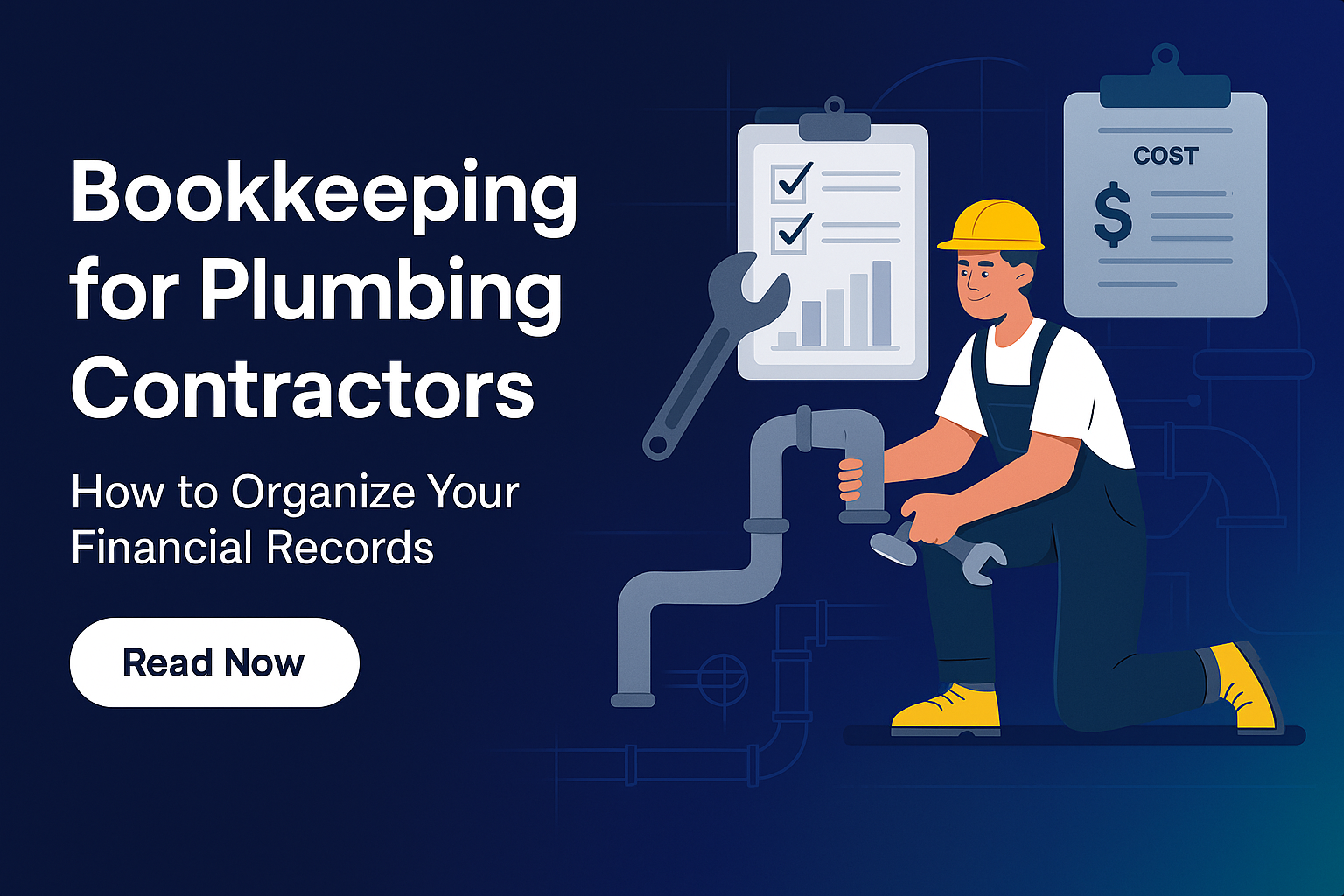
You don’t need another blog telling you to “track your expenses.”
You’re already doing that, sort of.
The real question is:
Do you actually know which jobs are profitable?
Or which months you're barely breaking even?
Most plumbing contractors don’t. Not because they’re careless, but because the bookkeeping is either:
Whether you’re doing it solo or in a team, here’s how to run the financial side of your business like it actually matters. Because it does.
Bookkeeping for plumbing contractors isn’t the same as for a retail shop or online business.
You’ve got:
Generic bookkeeping services miss these industry-specific details.
What you need is a bookkeeper for plumbing businesses, someone who gets your world, not just QuickBooks.
If you don’t know which jobs make money and which ones are killing your profits, you’re really taking it lightly.
Every plumbing job should have:
Tip: Set up your bookkeeping system to track per-job profitability, not just lump-sum income.
The best bookkeeping services for plumbing businesses don’t just show you totals, they show you what’s working.
Your tech’s paycheck isn’t the full cost.
You need to factor in:
Let’s say you pay a tech $30/hr. Once you add the rest, it might cost you $42/hr to keep them working.
Knowing this changes everything, how you price, quote, and schedule.
Any reliable bookkeeper should help you calculate this regularly and tie it back to your service pricing.
One of the most damaging habits we see in plumbing businesses?
Treating business revenue like personal money.
Lunches, personal fuel, gear for your kid’s football team, those blur the lines between business and life. And come tax time? You’ll regret it.
Separate your accounts. Use a dedicated card. And if you need to pull profits? Do it intentionally.
The plumbing business is seasonal and unpredictable. One week it’s wall-to-wall jobs. The next, crickets.
Use a simple rule: Never touch your “tax” or “profit” pots. Set them up in your bank (Starling, Monzo, or any bank with sub-accounts).
Aim to save at least 10–15% of every dollar you earn, before spending.
The right bookkeeping service for plumbing businesses will help you set this up, automate it, and keep your business calm, even when leads slow down.
When you’re busy, it’s easy to ignore the backend.
But if your goal is to:
Then you need clean, accurate books that any buyer, bank, or lender can understand.
Create a “knowledge base” of your numbers:
These aren't just accounting terms. They’re your levers for scaling.
Not all bookkeepers are created equal.
If your bookkeeper doesn’t understand:
…you’re going to spend half your time explaining, and still get mediocre data.
You don’t need a PhD in accounting. You need visibility.
If you’ve been avoiding books or relying on instinct, it’s time to clean it up.
Because clarity = control. And control = profit.
We work with bookkeepers who specialize in plumbing businesses, folks who know that a flat tire at 9AM can cost you, and why tool depreciation matters to your bottom line.
Work with us, we specialize in bookkeeping for plumbing businesses, we understand job costing, seasonal cash flow, and what deductions actually apply to your type of work.
You’ve got the jobs. You’ve got the team. Now get the financial clarity to grow with confidence.
We’ll show you where your money’s going — and help you keep more of it.
